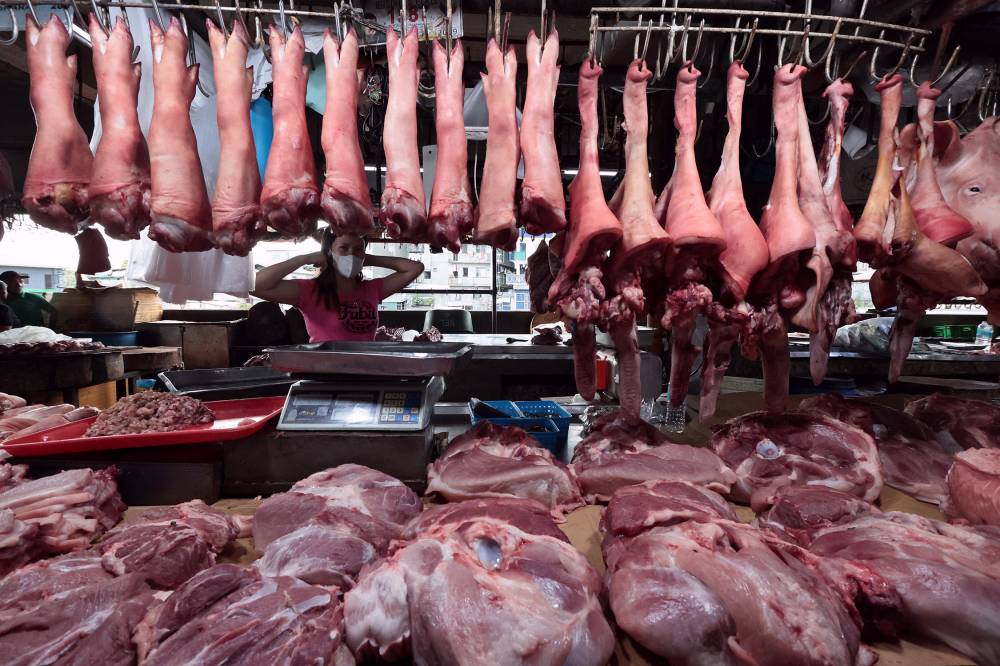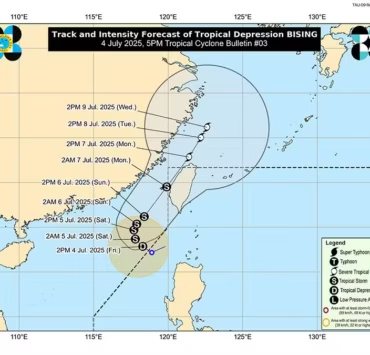Meat importers still see price spike during ‘ber’ months

Retail prices of pork may remain elevated despite lifting the ban on poultry imports from Brazil, the leading supplier of imported meat, due to the seasonal demand during the so-called “ber months.”
In a message to the Inquirer, Meat Importers and Traders Association president emeritus Jesus Cham said it is “difficult to say” whether retail chicken prices will stabilize or continue to rise as local supply also impacts pricing.
“New orders will arrive in September,” Cham said. “However prices have already gone up and we will see where they settle once new supply is available.”
“Unfortunately, that is also the beginning of the ber months so the trajectory will be upward,” he added.
Assistant Agriculture Secretary Arnel de Mesa earlier said the recent development would reduce retail prices of chicken amid the increased demand for meat products.
“What happens is that when we impose bans on major exporting countries, our supply sources shrink. This means there’s a slight supply shortage that can lead to an increase in prices,” said de Mesa, also the Department of Agriculture’s spokesperson, in a phone interview on Thursday.
Expected demand boost
“But now that the ban has been lifted, the entry of imported agricultural goods will ease again and the tight supply situation will be alleviated,” he added.
As of Wednesday, whole chicken retailed from P220 to P250 per kilogram, higher than P180-P210 per kg in the same period a year ago, based on the DA’s price monitoring.
This week, the DA lifted the import restriction after Brazil has been declared free of bird flu.
The DA promulgated Memorandum Order No. 34 covering domestic and wild birds and their products from the South American country, including poultry meat, day-old chicks, eggs and semen.
Per the memo issued on July 2, its evaluation found that the risk of contamination from importing poultry from Brazil is “negligible.”
The agency imposed the import ban in May following Brazilian authorities’ report to the World Organisation for Animal Health (WOAH) about an outbreak of avian influenza affecting domestic birds in Montenegro, Rio Grande do Sul.
Brazil subsequently informed the WOAH that all reported cases have ended and no additional outbreaks were recorded after June 18, making the nation avian influenza-free.
Brazil has been the primary source of imported livestock and poultry products, accounting for 43.04 percent of meat import arrivals as of April, according to the Bureau of Animal Industry (BAI).
Previously, the DA expressed its willingness to enter into a regionalization agreement with various meat suppliers including Brazil to facilitate the trade of agricultural products.
In an email correspondence to the Inquirer, the Embassy of Brazil in Manila said it is scheduling a meeting with the BAI to tackle some matters such as regionalization.
Through this arrangement, an import ban will only be imposed on areas or zones with ongoing animal disease outbreaks instead of enforcing a country-wide import restriction.

















